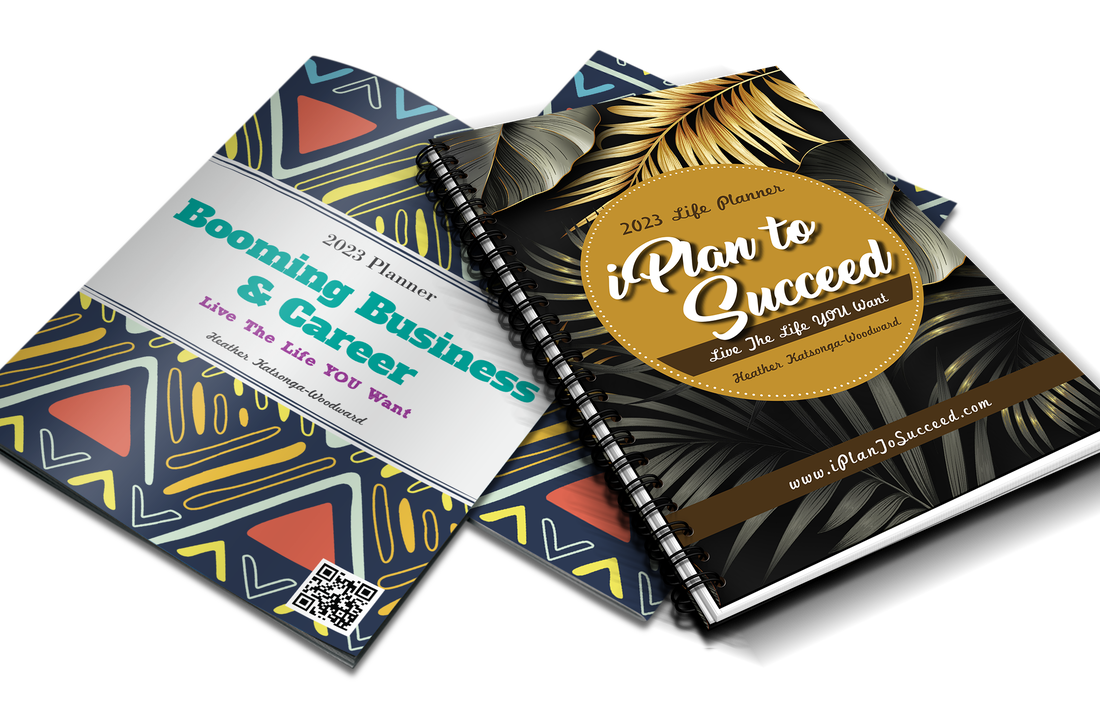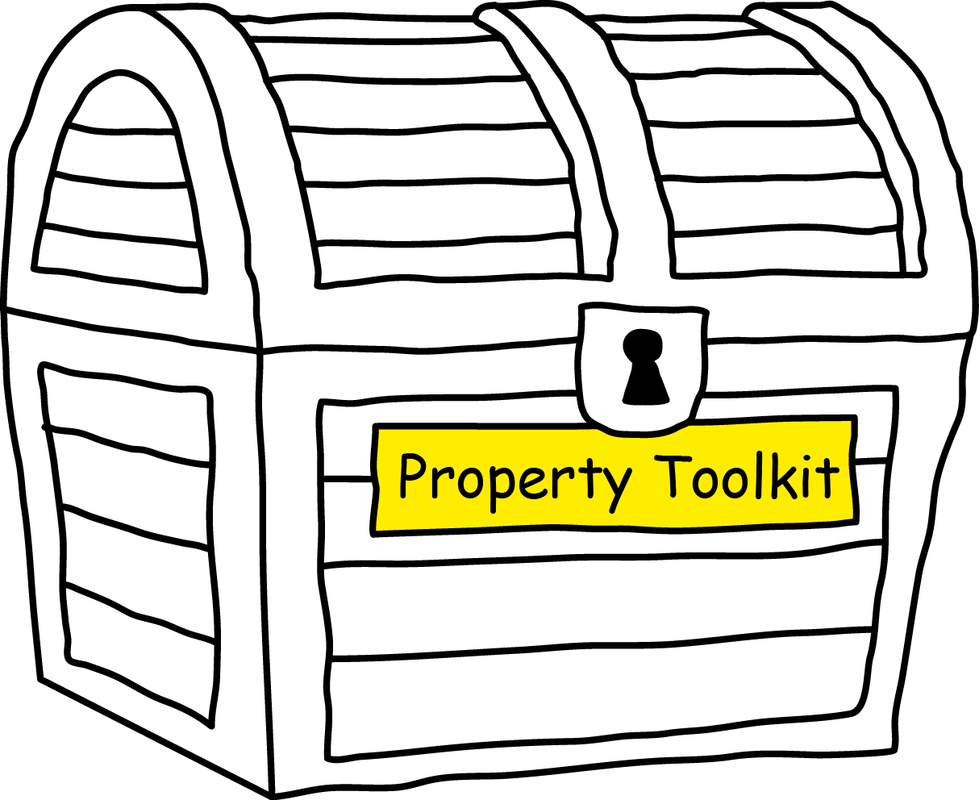 Rating: 5/5 It wasn’t until I read this book that I appreciated what the X in Malcolm X means. Malcolm was born in May 1925 to Earl and Louise Little. His mother was born in Grenada and was in fact very well educated. At the time of his birth slavery had been abolished 60 years previously but America remained a deeply divided and segregated society. He grew up at a time when the segregation of black and white children in schools had been made illegal yet he was the only black boy in his school. Most other forms of segregation e.g. blacks sitting at the back in a bus were still “legal”. Even then he was keenly aware that he was not allowed to pay any special attention to the white girls in his class. He ended up being raised an orphan because his father was murdered when he was only six. By this time Malcolm had already seen and heard a lot of his dad’s preaching re. pan Africanism inspired by Marcus Garvey. His father was himself an activist and although listed in the directory as “a labourer” he was a great speaker, preacher and much respected in the black community. A house the Little family had bought was burnt to the ground when Malcolm was a toddler because some white neighbours weren’t happy with having black people move into the neighbourhood; they argued that the house could not be legally owned by a non-Caucasian. After her husband's death Malcolm’s mother struggled to support her seven children and by the time Malcolm was 13 she was sent to a mental health institution after a breakdown. He grew up in a series of foster homes after that. Despite her fine education his mother couldn't get a decent job and after a hard day's work as a cleaner barely made 50 cents when white cleaners were getting $5 or $6 a week at the time. Malcolm was an intelligent boy and did very well at school, however, when a teacher asked him what he wanted to be and he said a lawyer he was told to be realistic. Lawyer, "wasn’t a realistic ambition for a nigger", he was told, he should think about carpentry and other handy trades. This discouraged him. He decided that if he couldn’t be a lawyer then school wasn’t worth it. He dropped out and went to live in New York with his half-sister Ella. From age 14 to 21 he lived the life of a city boy: he relaxed his hair into a conk using a highly corrosive mixture of lye, potatoes and eggs. He bought a zuit suit. The conk and zuit suit were essentially the “in thing” for a rebellious young boy at the time. He got involved in petty robberies and this eventually got him sent to prison were stayed for almost seven years. In prison he converted to Islam and joined a group called Nation of Islam; they were an extremist Islamic group of the time. Upon joining the Nation of Islam one took on the last name X and if someone else in your mosque had the same first name you were “christened” 2X or 3X etc. This is how he became Malcolm X. A new surname was required because you were breaking from your slave past. Last names were typically taken from a former slave owner because at the time slavery was abolished most black people didn’t have a last name. It made sense to take on the previous owner’s name so that any relatives that had been sold to other plantations could find you. I am now not sure how true this is because Booker T Washington’s autobiography states that former slaves typically didn’t take on their owner’s name because they wanted to break from that past. Hopefully this will become more clear with further reading. Over time Malcolm X who grew to be one of the key leaders in the Nation of Islam broke away from the group. His views became more pan African and he decided to fight for improved rights in a more inclusive way. Nation of Islam excluded all other groups including other African American groups and societies from its own fight for black rights. On his Hajj to Mecca Malcolm X also travelled to Europe and Africa meeting the likes of President Kwame Nkrumah of Ghana and Jomo Kenyatta of Kenya. These and other African leaders helped him to mount pressure on the US to end segregation in America. He met Betty X as a member of Nation of Islam. They married and had four children before he was murdered by members of Nation of Islam who didn’t like that he’d left the group and essentially no longer believed what they believed. Harlem Harlem was initially introduced to me through rap songs by Puff Daddy and Mase; until now I didn’t appreciate what a significant place it was from a historical perspective until I read this book. Harlem was not by any standards a nice place to live even in Malcolm X’s time but because black people were prevented from owning property and living in more well off neighbourhoods professionals such as black doctors and lawyers and important people in the civil rights movement lived here or stayed in a hotel in Harlem at one time or another. Notably, when Fidel Castro came to the US he stayed in Harlem to many people’s surprise and was so impressed by Malcolm X he invited him to visit Cuba. The End Malcolm X died just shy of his 40th birthday in 1965. He is now well known and accepted as one of the biggest leaders in the civil rights movement and that is why I chose this as one of my first books on African American history. Malcolm X – By Any Means Necessary is available on amazon.com and amazon.co.uk.
0 Comments
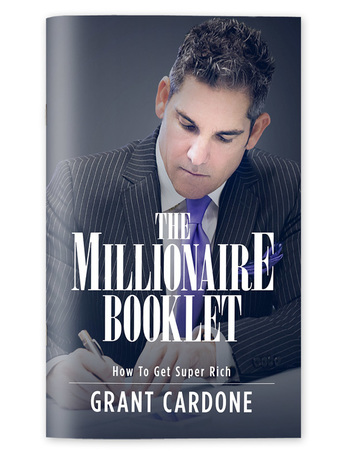 Rating: 5/5 I find it hard to argue with anything Grant Cardone ever says – sometimes he even writes things almost exactly as I have written them in some of my wealth writings. As you might know from previous book reviews I am a massive fan. He is an awesome sales person and I love his go-getting attitude. Frequently authors can’t narrate their own books better than a professional narrator would but Grant Cardone is one amazing narrator. Just to give you an idea of how much I love the guy, I wanted to call my son Grant Cardone Woodward but the good husband forbade it. Given I’ve read better books by Grant this isn’t life changing and its advice may perhaps seem basic but in the 2 hour audiobook he reminds us what success takes. The Millionaire Booklet is spirit renewing. One of my favourite lines in the book comes when he decides to become a real grafter and essentially stops going out. Grant's friends were like "we never see you in the club, Grant, what's going on?" and he was like, "You never see me in the club just like I never see you at the bank"! Boom, in your face. It's this forthrightness that makes me like the guy so much. As with all his books, the book made me feel ready to conquer the world and made me want to get out there and find who’s got MY money. The Millionaire Booklet is available on amazon.com and amazon.co.uk. My other book reviews: By the way, did you know that Grant Cardone built his $400 million fortune through property? Yes, he did - if you want to do the same thing, check out my property course.
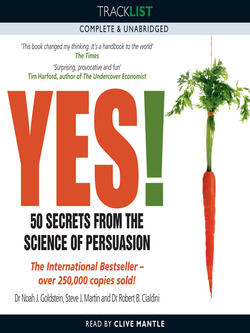 Rating: 4 / 5 Who doesn’t want to be more persuasive? Whether you own a business or not you’re constantly in the business of trying to sell something – your great traits as an employee or wife(!), a project or even an idea. Heck, if I got a penny for every time one of my mummy friends said, “I want to do x but I just need to convince my husband”, I’d be richer than Donald Trump! I’ve had the paperback version of Yes! For ages but it’s only when I got the audio version that I got to the end. The book is based on the subtle changes we can make to influence a decision. All 50 examples in the book are based on empirical studies so they are scientifically proven to work. There are 50 ideas in this book so there is no way I can summarize them all but a few examples include the following:
There were tonnes of good tips here and I, in fact, feel I should re-read this book because I was very distracted over the period I read the book. I’m preparing for a property renovation so I was driving along half listening to the book and half thinking about the different tiles I’ll put in each one of my bathrooms. Everyone has to sell something, even if it’s just yourself or your views so give this book a read to become more of a gentle persuasion artist. It’s available on amazon.com and amazon.co.uk. 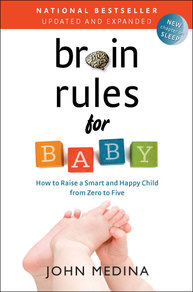 Rating: 5/5 A real gem of a book, I wish I had found this book before I became pregnant because I might have done things a little differently. That said, I don't think I got it much wrong. In this book John Medina discusses how a baby's brain works based on other people's studies as well as his own experience as a parent. If I'd been taking notes I would have written a little novella myself but a few things stuck nonetheless. I couldn't even begin to cover the breadth and depth of information covered in this book so if this kind of things does interest you, get the book. So in summary:
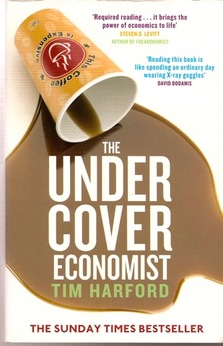 4/5 It's only when I started reading this book that I realized I’ve already read it! Anyhow, I thought I hadn’t finished it the first time around so I read on. This book is similar to Freakonomics in that it looks at every day situations and explores them in a way a layman would not normally have thought about the subject. It’s a good book but not as good as Freakonomics, that said, if you like to read non-Fiction that educates without boring you to death, then this is one you’ll enjoy. Example scenarios explored in the book include: Why coffee joints that sell coffee at daylight robbery prices aren’t actually making much money. What negative externalities are, for example pollution, and how they should be solved vs. how they are currently solved. What positive externalities are and how you are benefit from them without knowing it. What happens when one side in a transaction knows a lot more than the other side, for example when you're trying to buy or sell a second hand car (Akerlof's lemons). This is known as asymmetric information. What would happen if insurers sold insurance without a deductible (also known as an excess in Britain)? - this is the moral hazard problem. Personally, I find these kinds of problems fascinating that's why I did my degree in Economics. If you don’t have an Economics degree but want knowledge on some basic economic fundamentals so you can look really smart amongst your friends, grab your copy on amazon.com or amazon.co.uk. As an business owner I think this is a must-read because when you see what you think is a great opportunity to make money you might actually be wrong. For instance, most laymen would assume that coffee shops in train stations are raking it in because they don't have any competition. In reality, it's probably the landlord of the shops that's enjoying most of that cashflow (The Undercover Economist explains why) so what business opportunity should you be exploring? Opening a coffee shop or owning prime real estate? 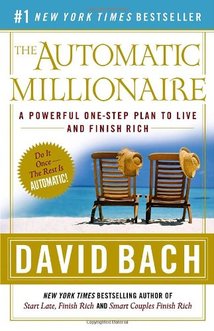 5/5 I didn’t learn anything completely new in this book, however, I was reminded of what matters when it comes to building wealth and a good credit record. It’s the sort of stuff I talk about in Black Girl Getting to Wealthy: Build Super Savings (available on amazon.com, on amazon.co.uk and other local amazon sites). The biggest take away: automate your financial life! Your savings, your mortgage payments and your bill payments should all be automated so that you don’t forget to save. I do this. What helps is holding different bank account for different things. So in our household we have a joint bank account from which all bills are paid and each month a given, fixed amount goes in there. We have a savings account to which our savings are automatically placed. And now, because our property portfolio is growing ever larger we have designated an account that I wasn’t using for all rents from property investments to be received, mortgage payments to be made and property related expenses to be made. In addition, the moment our son got a birth certificate back when he was a month old we opened a bank account for him and each month we place £250 into that junior ISA (£125 from mama, £125 from papa). The money goes there automatically so does his child benefit of £20/week from the Government. How much will he have on his 18th birthday if we just let things be and the money continues flowing into his account and assuming he gets a rate of at least 3% per annum compounded annually? Fyi, he’s been getting 4% in interest since we opened the account so this is not a foolish assumption. £97,432 – that could fund a deposit on a property, pay for university plus leave plenty of change for a round the world trip. If we stopped saving on his fifth birthday he would still have £35,450 in his account on his 18th birthday if the saved money continued to earn at least 3%. If he continues to enjoy the 4% he’s getting at the moment that will be a whooping £107,752 on his 18th birthday if we save until then. The power of compound interest. A sensible book that I recommend; get it on amazon.com or amazon.co.uk. 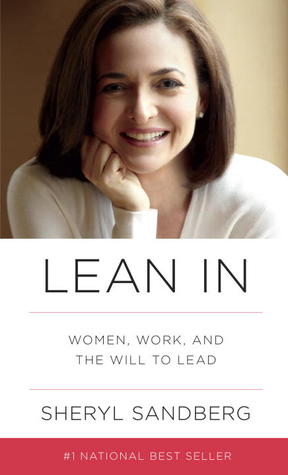 5*/5 This is one book that needed to be written and the right person wrote it. Most people do not become billionaires from employment, Sheryl Sandberg is one of those that did. The chick is minted. If it wasn’t for the fact that her husband collapsed and died at such a young age I would totally want to be her! Such a shame. I actually did not expect to like Sheryl Sandberg or her book because she isn’t really an entrepreneur, she’s always had her pay cheque come from a corporate so I don’t see her as having taken any massive risks with her life but I LOVED her. In fact, I changed my view on her re. not taking risks with her career because I learnt more about her career progression through this book. Long story short, she worked as a management consultant out of university, then had a stint in Government working for Larry Summers from 1996 to 2001 when he was US Treasury Secretary then she decided to go into Technology. She took on a role at Google when Google was a fledgling little company. Her friends laughed at her and thought she was crazy to leave a secure employment path. This is always the case when you do something different but it paid off. She rode Google’s success with them and when she was considering leaving Google for The Washington Post, Mark Zuckerberg asked her to join Facebook as COO instead. It’s a Cinderella employment story. Anyhow, the book is mostly not about her but offers a wide-ranging volume of data and literature on women and the workplace. I really enjoyed the stats and the research collated in the book and I totally value the fact that she is also a mum. Some of my favourite things: 1. Did you know that women hate successful women? Yes, for real. She talks of a study in which a go-getting person is described. In one case the name Howard is used and in another version they keep everything the same but call the person Heidi. After people were asked to read the study and assess the personality of the protagonist, significantly more people gave Hilary negative character traits such as being “aggressive”, “bossy” and other undesirable traits. Indeed, studies show that as men become more successful people like them more but as women become more successful people like them less including other women. Studies also show that traits like “ambition” are seen as positive traits in a man but negative in woman. 2. Sheryl argues that who you marry is possibly the most important career decision you ever make. Your partner will either pull your career up or tear it down. I could not agree more. I love the example she gave of a couple she knows who both have high pressure careers. In their relationship the husband was more naturally suited to preparing school lunches etc. for their kids so his colleagues were surprised when his wife calls while he is out of town to ask what he puts into the lunch box and he recounts whatever it was – sandwich, fruit, juice and cookie, for instance. Then a couple of months later when he is out of town again he gets the same call and again lists the same stuff – sandwich, fruit, juice and cookie. Some people just have knack for certain things and when you take away society’s assigned gender roles from the equation, it can be either the man or the woman. The reason I love this is because it fights common stereotypes about what roles different people should play in a relationship. My husband does a lot of roles that society traditionally expects me to play because he does them better than I do and vice versa. His eye for picking cool clothes, for example, means our son generally looks better when he dresses him up rather than when I do so he’ll frequently dress him before he goes to work. And my keen eye for financial deals means I’m better suited to negotiating new mortgage deals, insurance deals and building our property portfolio Indeed, I know a few friends that fail to progress with their dream because their partner does not support them. 3. Men who do more housework get more sex! Yes, it appears this is the case. Frankly, I think it makes sense. There is nothing sexier than a man that does housework J. 4. Don’t plan your life around having to be a mother or a wife Sheryl Sandberg says lots of women take on smaller roles and refuse promotion opportunities because they are planning on having a baby or getting married. She says go for it with all you have got and take on every opportunity you would ignoring that stuff and essentially cross that bridge when you actually get to it. She mentions on intern who asks for a meeting with her to asks questions about family vs. career planning when she didn’t even have a boyfriend. Laugh along with me, please. 5.The Gender Discount problem She talks about how women get punished for things in the workplace that men do not. Women are presumed to be communal and helpful so if they don’t act to fulfil this they pay a penalty. For example, imagine there is heavy workload at the office, if a male colleague offers to help it’s consider an imposition so he gets compensated with more favourable employment evaluations, e.g. salary increases and bonuses and there are no real consequences if he doesn’t offer to help. A female colleague will get no kudos for helping but will look bad (negative rewards) if she does not offer to help. She goes on to say that men negotiate more for better pay etc. than women but this could be because men are expected to and women can in fact pay a penalty for advocating for themselves due to this gender discount problem. The solution: a woman has to negotiate for the herd. You need to look like you’re not promoting just yourself but everybody or somebody else. She mentions a group of women at Merrill Lynch that met up for lunch weekly and after that lunch would go back to their desks and actly brag about the good work one of their women colleagues was doing. The result: they all ended up getting promoted faster – go figure! 6. You too have biases and hold stereotypes Ultimately, she says we are all biased and hold certain stereotypes whether we like it or not and not acknowledging that we do does more harm than good because we develop a “bias blind spot” in which we fail to recognise and correct for our own biases and prejudices. She sites a study in which people were asked to look at profiles and choose a police chief. Those that declared themselves to be "not biased" were actually found to be much more biased in favour of men than those that admitted they did hold a bias/stereotype. There is so much more I enjoyed about this book but I can't recount it all. A fascinating read available on amazon.com and amazon.co.uk. 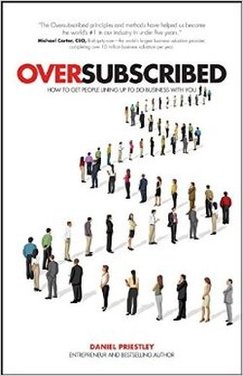 Rating: 5 / 5 Business and enterprise is a journey. It doesn’t matter which books you read, you will inevitably make mistakes; that’s part of the process. If someone presents you with a full roadmap to achieving your dreams you can’t skip fundamental steps and still expect to get where you’re going. Yes, you can take shortcuts by implementing some ideas and concepts in an innovative way so that you drive straight through some stumbling blocks but there are certain fundamental roads you cannot skip. I feel all of Daniel’s concepts are actually easy to implement and don’t leave you asking a million more questions that you can’t answer yourself. Some of the successful people I follow seem to have gotten there by simply being in the right place at the right time without a system they can teach others to follow. Daniel Priestley isn’t one of those. This is why he’s used the same system to grow a few businesses. He’s a very impressive thinker. Having a core team is one of his key suggestions. I’ve been running my own business for over 3 years now and I’ve avoided employing people full-time because I thought it was a major hassle. I saw it as an inconvenience because I couldn’t be bothered to deal with employment legislation. I’ve done a lot by leveraging third-party services such as contract manufacturers, fulfilment houses and freelancers and it’s paid off as the $202,000 made on Amazon USA proves, however, it’s becoming clear that further growth will require a team. I finished listening to Oversubscribed and two weeks after taking stock of where my business has gone I’ve realised that I now own my job! My inbox fills up at an atrociously rapid rate which is great because it means something is working but it also means I have to take my laptop on every holiday.
I can work from anywhere in the world, I only work a few hours a day and indeed I hold inventory in the US and in the UK now so I am essentially a one-woman multinational with no full time employees – even I don’t work full-time hours **gasp**. But, what’s the point of carrying your job wherever you go? A business should reach a point where you can go away for two weeks without checking your inbox at all with an expectation that things will still run smoothly in your absence. These are some of my reflections since reading Oversubscribed and I’ll definitely have more on the second listen of the audiobook but I’ve also taken fundamental action. This week I viewed offices for the first time and I am about to start advertising for two roles. One of the roles has been filled before I’ve even committed to the office facilities. A fellow Cambridge grad and friend believes in the work I’m doing so much he’s coming on-board. He’s an engineer with a completely different skill set to mine so it’s a perfect complement. Ultimately, when you read Oversubscribed you will more than likely be inspired by different elements of the book to the ones that inspired me. It all depends on where you are in your business. Employing people is a huge step but when you hire people each person is not just a cost centre but also a revenue centre. A small business with a limited budget has to spend money in the right way so hiring the right people upfront is key. After that you need to track your progress weekly if not daily to ensure you’re on the right path. Having completed Daniel Priestley’s Key Person of Influence program I continue to learn so much from him and the community he’s built. For that, I am grateful. 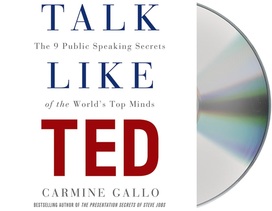 Rating: 5 / 5 In many way this book is similar to Yes!byCialdini and Goldstein in that it’s based on empirical analysis but in my opinion it’s better written or told, given I listened to the audiobook. Ted Talks have been loved by billions the world over so the secrets behind the success of the best presentations is inherently interesting. Nine secrets were revealed:
Another book that is so worth a read;get it on amazon.com or amazon.co.uk.  Rating: 4.75 / 5 It’s a very good read. Frankly I got irritated by Ifemelu half way into the story when she made a comment about not liking “hearty” food because she was too judgmental of people that were different to her. I was like who doesn’t like hearty food? Mxiii – importantly, who looks down upon those that like hearty food? Ifemelu the main protagonist in the book definitely considered herself to be a cut above the rest. That said, it was a story worthy of a read and had a Douglas Kennedy feel about it. He’s my favorite author. I still prefer Half of a Yellow Sun that’s why I am rating this 4.75/5.00 rather than 5.00. If you’re an African that has experienced moving to America for a prolonged period of time for work or education you will enjoy this book a lot more. My sister is one such person and she said she could totally relate to the experience. I also appreciate and applaud Chimamanda for portraying Africans in a different light. As irritating as Ifemelu became with her quirks she generally embodied the diversity of African diaspora. The media frequently portrays us as backward or simple but that could not be farther from the truth; there are Africans that love “high culture” (art, classical music, etc.) just as there are many in the West who do not so I am very glad that Chimamanda added a different perspective. Everyone should read this book as a good piece of literature but more so if you’ve experienced culture shock by moving from your homeland to “The West”. Buy Americanah on Amazon.com or buy it on Amazon.co.uk. |
Heather Katsonga-WoodwardTime allowing, I love to read. If I read anything interesting, I will blog about it here. 2019 Life and Career PlannerCategories
All
Archives
January 2019
|
Heather Katsonga-Woodward, a massive personal finance fanatic.
** All views expressed are my own and not those of any employer, past or present. ** Please get professional advice before re-arranging your personal finances.






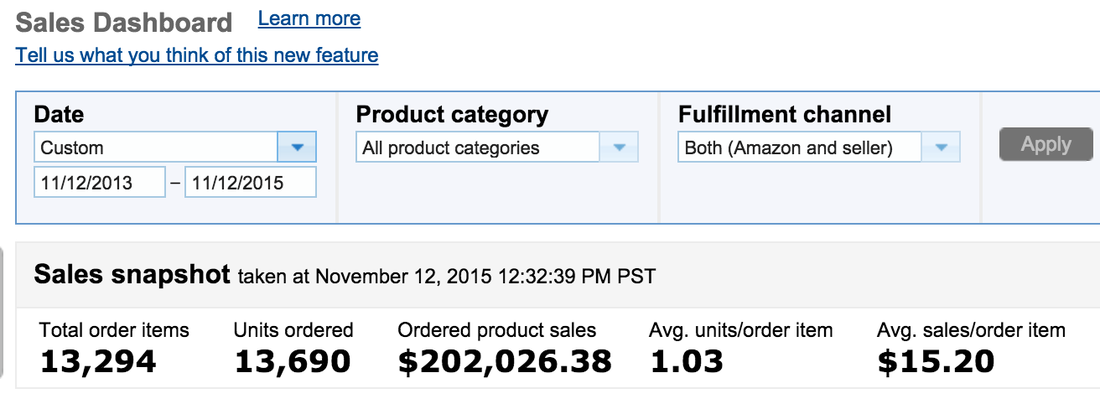



 RSS Feed
RSS Feed
